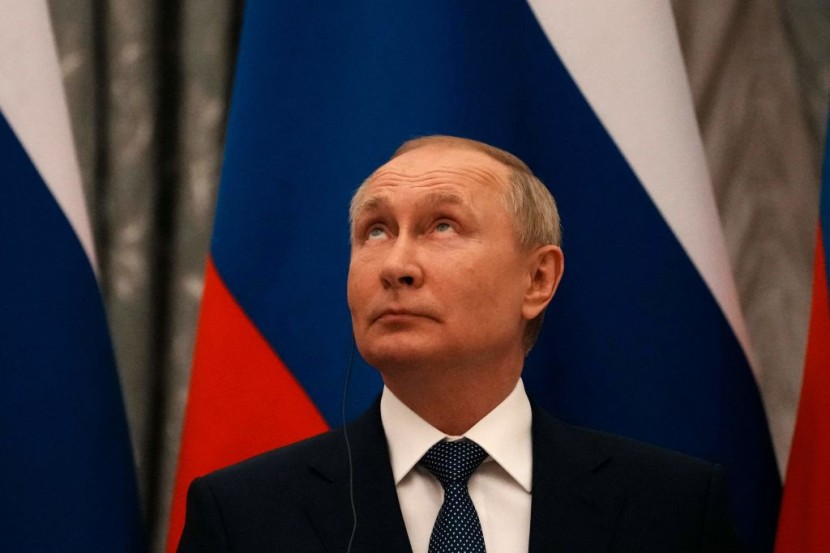
The International Criminal Court (ICC) has issued a warrant for arresting Russian President Vladimir Putin for suspected war crimes in Ukraine, a step Moscow has deemed worthless.
The court in The Hague said in a statement on Friday that the arrest warrant was issued due to Putin's alleged involvement in the illegal deportation and transfer of minors from occupied parts of Ukraine to Russia.
Arrest Warrant for Vladimir Putin
The International Criminal Court, which lacks the authority to execute its arrest orders, also issued an arrest warrant for Maria Alekseyevna Lvova-Belova, the commissioner for children's rights in the office of the Russian president, on similar charges.
Russia, which denies committing crimes since invading Ukraine in February of last year, deemed the International Criminal Court's action invalid. After the announcement, Russian foreign ministry spokeswoman Maria Zakharova stated on her Telegram channel, "The judgments of the International Criminal Court are meaningless for our country, even from a legal perspective."
But ICC President Piotr Hofmanski told Al Jazeera that Russia's failure to ratify the Rome Statute was "immaterial." Hofmanski said 43 governments have formally invoked the court's jurisdiction by referring to "the situation in Ukraine" to the court. The warrants were issued one day after an investigation endorsed by the United Nations accused Russia of committing extensive war crimes in Ukraine, including the forcible deportation of minors in regions it controls.
The International Criminal Court has particular definitions for genocide, war crimes, crimes against humanity, and aggression. Particularly, targeting civilian populations, violations of the Geneva Conventions, and targeting specific groups of individuals might be considered war crimes by Russia.
Per CNN, anybody suspected of committing a crime under the court's jurisdiction, which includes ICC member states, can be tried. The court tries individuals, not nations, and concentrates on those who bear the most responsibility: government officials and leaders.
While Ukraine is not a court member, it has recognized its jurisdiction in the past. Hence, Putin is subject to indictment by the court for authorizing war crimes in Ukraine.
Nevertheless, the ICC does not conduct trials in absentia, so he would have to be apprehended outside of Russia or turned over by Russia. This is not very certain as long as Putin is in charge. Court actions can be initiated in one of two ways: The UN Security Council or a national government can recommend matters for inquiry. As a permanent United Nations Security Council member, Russia can veto council measures.
Requests from 39 national governments, most European, prompted the present inquiry. If justice travels slowly in general, international justice moves almost imperceptibly. Investigations at the International Criminal Court take many years. A few convictions have ever been obtained.
Russia's Abduction of Ukrainian Children
It is unknown how many young Russian soldiers have been abducted from Ukraine. The Yale Humanitarian Research Lab produced a study last month claiming that at least 6,000 Ukrainian youngsters were taken to Russian "re-education" camps in the previous year.
In a statement released on Friday, the prosecutor of the International Criminal Court, Karim Khan, stated that several of the children had been made available for adoption in Russia and that Putin had signed an order accelerating the granting of Russian citizenship to the children, so making it simpler to adopt them. T
The president of Ukraine, Volodymyr Zelenskiy, estimated that the number of deported children exceeded 16,000 and stated that the warrants marked "a historic choice that will result in historical accountability. Wayne Jordash, a Kyiv-based international human rights attorney and managing partner of Global Rights Compliance, concurred that Putin and Lvova-arrest Belova's warrants were likely the first of many.
According to The Guardian, the Russian government has openly admitted to bringing Ukrainian children to Russia and placing them in camps or making them available for adoption by Russian families. On February 16, Lvova-Belova went on television and thanked Putin for allowing her to "adopt" a 15-year-old kid from Mariupol, a city in the southeast of Ukraine destroyed and controlled by Russian soldiers.
The arrest warrant for Vladimir Putin was applauded by the EU's foreign policy chief, Josep Borrell, who called it "the beginning of the accountability process," and by the UK's foreign secretary, James Cleverly, who stated that "those responsible for horrific war crimes in Ukraine must be brought to justice."
The United States responded with more restraint. The United States is not a member of the International Criminal Court, and the Pentagon has opposed cooperation with the court out of concern that the court may prosecute American soldiers. Reed Brody, a veteran war crimes prosecutor and author of the book To Capture a Dictator about the pursuit of Chadian leader Hissène Habré, stated that the warrant "makes Putin's world smaller."
Related Article : Russian President Vladimir Putin, Syrian Counterpart Bashar al-Assad Back Each Other's Wars
@YouTube
© 2026 HNGN, All rights reserved. Do not reproduce without permission.








